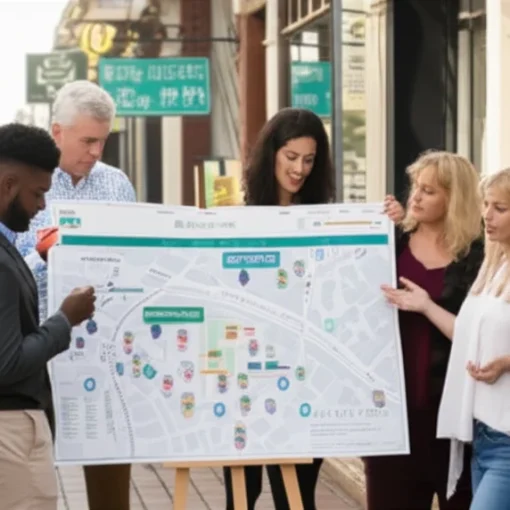Thinking about starting a firm, expanding your services, or even just picking up a trade in Wisconsin? You’ve likely spent countless hours refining your business plan, nailing down your marketing strategy, maybe even finding the perfect location. But hold up a minute. Before you hang out that Open sign or take on that first big client, have you stopped to ask yourself: Do I actually need a state license to do this work? It sounds simple, maybe even like a bureaucratic hurdle, but trust me, overlooking this step can cause major headaches down the road – think fines, legal issues, and a serious blow to your credibility. Navigating the world of state licensing in Wisconsin can feel a bit like wading through treacle, but it’s absolutely non-negotiable for many professions. Let’s break down some of the key areas where you’ll definitely need that official nod from the state, where you typically go to get it, and how to keep it valid, because nobody wants to get caught out by an expired license.
Why That Piece of Paper Matters More Than You Think
Look, I’ve seen folks pour their heart and soul into getting a business off the ground, only to hit a wall because they didn’t realize they needed a specific license for their industry. It’s not just about bureaucracy; it’s fundamentally about protecting the public and ensuring people providing certain services or working in specific trades have demonstrated competence and adhere to established standards. For you, the business owner or professional, having that license isn’t just a legal requirement; it builds trust with your clients. It shows you’re legit, that you’ve met the state’s requirements, and you’re playing by the rules. Plus, frankly, it keeps you out of trouble with regulatory boards, and nobody wants that kind of drama. In Wisconsin, a huge chunk of professional and occupational licensing falls under the umbrella of the Department of Safety and Professional Services (DSPS). This is your absolute go-to resource for most things licensing-related, but there are others, depending on the field.
Key Professions Requiring a Wisconsin State License
Okay, let’s dive into some of the big ones. This isn’t an exhaustive list – seriously, Wisconsin licenses a lot of things – but these are some common areas where entrepreneurs and professionals often need to jump through the licensing hoops.
Healthcare Professionals
This is probably the most obvious category, and for good reason. Dealing with people’s health requires rigorous standards. You’ll find a whole host of licensed roles here.
- Who Needs Licensing: Nurses (RNs – LPNs), Doctors, Dentists, Pharmacists, Therapists (Physical, Occupational, Speech), Counselors, Chiropractors, Veterinarians, and many, many more. Essentially, if you’re providing direct healthcare services or advice, you likely need a license.
- Where to Apply: The vast majority of these professions are licensed through the Wisconsin DSPS, specifically via various boards like the Medical Examining Board, Board of Nursing, Pharmacy Examining Board, etc. Their website (dsps.wi.gov) is where you’ll start. You’ll usually find online application portals there.
- The Application & Renewal Process:
- Applying: The process typically involves submitting an application, often requiring transcripts, proof of education, passing specific exams (like the NCLEX for nurses or boards for doctors), background checks, and paying a fee. It’s not a quick process, so plan ahead. Like, way ahead. I’ve seen people delay opening for months because they underestimated the time needed for licensing and exam scheduling. Don’t be that person.
- Renewing: Licenses need periodic renewal, usually every one or two years. This almost always requires continuing education units (CEUs) or hours to ensure you’re keeping up with best practices in your field. You’ll typically renew online through the DSPS portal. There’s a fee, of course, and you’ll need to attest that you’ve completed your required CEUs. As you might expect, keep meticulous records of your CEUs, just in case you’re ever audited. It’s a pain if you have to scramble last minute.
Skilled Trades
Thinking about becoming an electrician, plumber, HVAC tech, or even doing certain types of construction work? Yep, licenses are mandatory here too. This is crucial for safety – both yours and the public’s.
- Who Needs Licensing: Electricians, Plumbers, HVAC Journeymen and Contractors, Home Inspectors, and some specialized areas within construction.
- Where to Apply: Again, the Wisconsin DSPS is the main hub, often through boards like the Examining Board of Architects, Professional Engineers, Designers, and Professional Land Surveyors, and the Plumbing, Electrical, and HVAC systems sections.
- The Application & Renewal Process:
- Applying: Typically involves documenting work experience (apprenticeships are common here), passing exams (often a written and sometimes practical test), submitting applications, and paying fees. Reciprocity with other states can be tricky; don’t assume your license from Illinois or Minnesota will just seamlessly transfer. Always check the specific requirements for Wisconsin. This is a common pitfall I’ve seen – folks move here, thinking their out-of-state license is good to go, and suddenly they’re facing a whole new set of exams or experience requirements.
- Renewing: These licenses usually need renewal every few years. Often involves continuing education relevant to code updates and safety practices. Renewals are typically handled online via the DSPS site, requiring fees and confirmation of CEUs. Pro-tip: Set multiple reminders for your renewal date. Missing it isn’t just inconvenient; it means you legally can’t work until it’s reinstated, which can take time and potentially involve penalties.
Real Estate Professionals
If you want to help people buy, sell, or manage property, you’ll need a license. This includes agents, brokers, and appraisers.
- Who Needs Licensing: Real Estate Salespersons, Real Estate Brokers, and Real Estate Appraisers.
- Where to Apply: This falls under the purview of the Real Estate Examining Board, which is part of the DSPS. The DSPS website is your starting point for applications and information.
- The Application & Renewal Process:
- Applying: Requires completing pre-licensing education courses, passing a state exam, submitting an application, undergoing background checks, and associating with a licensed broker (for salespersons). It’s a structured path, and missing any step or requirement will hold you up.
- Renewing: Licenses are typically renewed biennially (every two years). You’ll need to complete specific continuing education requirements during that period. Renewal is done online through the DSPS portal, involving fees and attesting to CE completion. Don’t wait until the last minute for CE; courses fill up, especially near deadlines.
Select Professional Services
Beyond healthcare and trades, several other professional services need state licensing to ensure competency and ethical practice.
- Who Needs Licensing: Accountants (CPAs), Lawyers, Architects, Professional Engineers, Land Surveyors, Funeral Directors, Barbers, Cosmetologists, Estheticians, and others in appearance and personal care services.
- Where to Apply: CPAs are licensed by the Accounting Examining Board (part of DSPS). Lawyers are licensed by the Wisconsin Supreme Court and regulated by the State Bar of Wisconsin. Architects, Engineers, and Surveyors are licensed by the relevant board within DSPS. Barbers and Cosmetologists are licensed by the Barbers and Cosmetologists Examining Board (also DSPS).
- The Application & Renewal Process:
- Applying: Requirements vary significantly but generally involve completing specific educational programs, passing rigorous exams (like the CPA exam, the Bar exam, or professional engineering exams), meeting experience requirements, submitting applications, and paying fees. The Bar exam and CPA exam, for instance, are famously challenging and require significant preparation.
- Renewing: Renewal periods and requirements vary greatly. CPAs and Engineers typically need continuing education. Lawyers have mandatory continuing legal education (CLE). Barbers and Cosmetologists may have specific continuing education or training requirements. Renewal is often online via the relevant board or state body’s website and requires fees and proof of meeting continuing education requirements. Keep meticulous track of these CE/CLE requirements, as they can be specific about course content and providers.
Practical Advice from the Trenches
Okay, so that’s a quick run-through of some major areas. The big takeaway? If you’re providing a service or working in a trade that impacts public health, safety, or financial well-being, there’s a really good chance you need a license. Here’s my honest-to-goodness advice, based on seeing people navigate this for years:
- Verify, Verify, Verify: Always check the official Wisconsin DSPS website (dsps.wi.gov) or the specific state body regulating your field. Don’t rely on hearsay or what someone else thinks the rules are. Requirements change. Boards update their rules. Get it straight from the source.
- Start Early: Seriously, start looking into licensing requirements and processes months before you plan to launch or start working. Applications take time to process. Exams aren’t always offered daily. Background checks aren’t instant. Build this timeline into your company plan.
- Budget Appropriately: Licensing isn’t free. There are application fees, exam fees, renewal fees, and potentially costs for continuing education. Factor these into your operating costs.
- Understand the Specifics: Don’t just know you need a plumbing license. Know which license (journeyman, master, contractor?), what level of experience is needed, and exactly which exams you must pass. The details matter.
- Don’t Miss Renewal Deadlines: Mark your calendar, set phone alerts, tie a string around your finger – whatever it takes. Letting a license lapse is a headache and can lead to penalties or even having to go through a significant part of the initial licensing process again.
- Keep Immaculate Records: Save copies of your application, your license certificate, every renewal notice, and all documentation proving you completed your continuing education. If there’s ever a question or an audit, you’ll be incredibly grateful you have everything organized.
Navigating state licensing is a critical part of doing business legally and ethically in Wisconsin. It might seem daunting at first, but by identifying the requirements early, understanding the process through the official channels like the DSPS, and staying on top of renewals, you can handle it efficiently. It’s a necessary step to gain credibility, verify public trust, and most importantly, keep your venture running smoothly and legally. Good luck, and don’t hesitate to use those state resources – they’re there to help, even if the process feels complicated!



